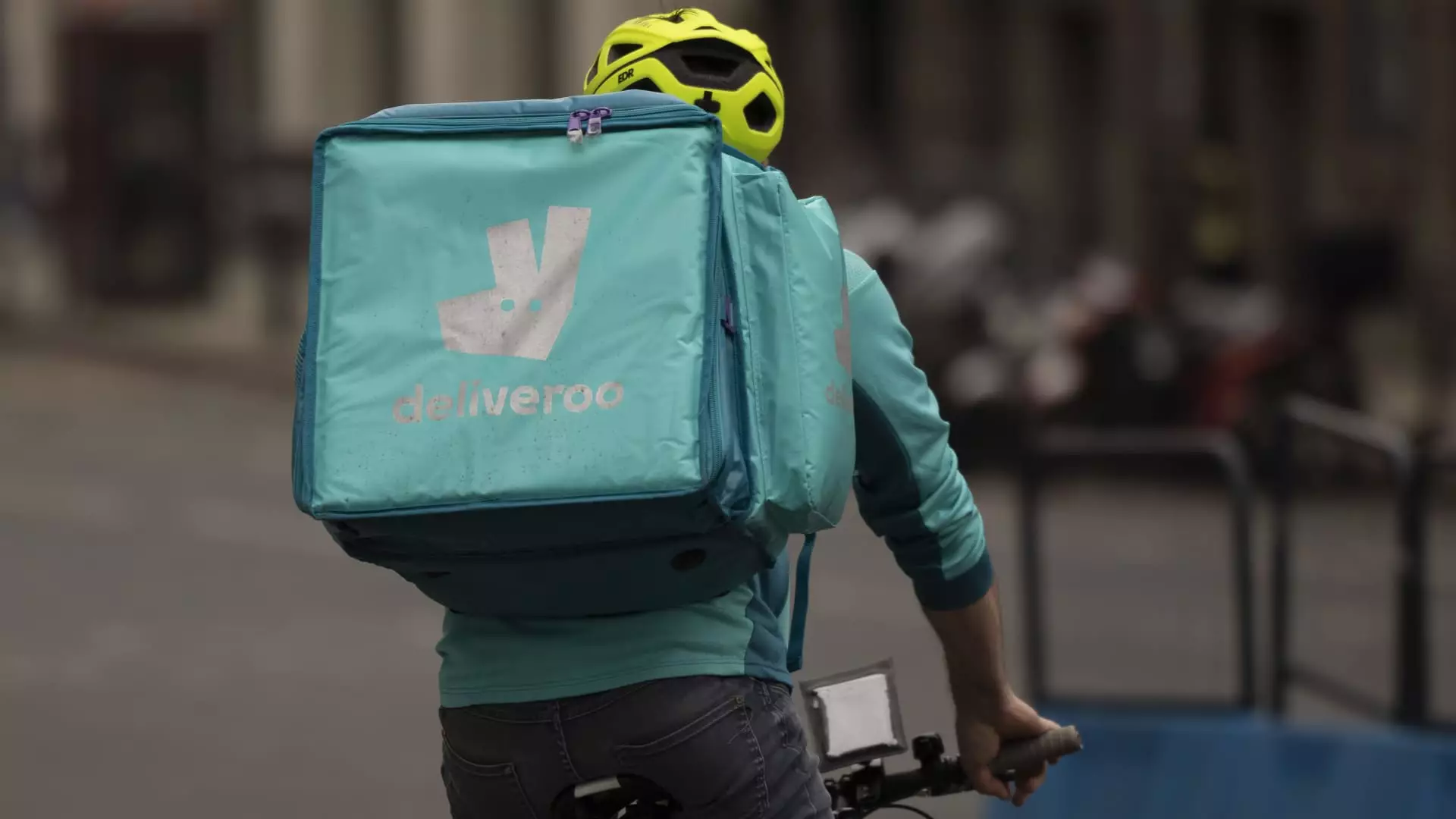In an unexpected turn of events that has sent ripples through the food delivery sector, British company Deliveroo has reached an acquisition agreement with American rival DoorDash, valuing the UK firm at a staggering £2.9 billion ($3.9 billion). The proposed deal signifies a burgeoning interest from international firms in the competitive UK market, particularly as consumer habits evolve in the post-pandemic digital landscape. The acquisition comes at a premium—180 pence per share—reflecting a 44% increase over Deliveroo’s recent stock price, providing a lifeline amid uncertain market conditions for the company.
This merger is not merely a financial transaction; it represents a strategic expansion and consolidation in an industry that has faced myriad challenges. The pandemic initially boosted food delivery apps, making them a staple for consumers confined to their homes. However, as the world reopens, Deliveroo has struggled with diminishing stock prices and increasing competition. Transitioning from its former status as a market darling to enduring significant share price drops, Deliveroo’s partnership with DoorDash could be a substantial rejuvenation effort for the brand to regain its former stability.
Implications for the Food Delivery Sector
Let’s consider the broader implications of this acquisition. The food delivery industry has already experienced considerable consolidation, with major players seeking to fortify their market positions through mergers and acquisitions. This latest endeavor by DoorDash is not merely about acquiring Deliveroo’s customer base but is also a bold extension of its footprint in an international terrain teeming with growth opportunities.
DoorDash, with its recent acquisition of the Finnish food delivery platform Wolt, reflects a clear strategy to dominate the global food delivery network. This calculation not only addresses the intense competition within individual national markets but also adapts to changing regulations and consumer preferences regarding food delivery and gig economy dynamics. Merging with Deliveroo opens avenues for DoorDash to cater to over a billion customers across more than 40 countries, illustrating a forward-thinking approach to scalability and operational efficiencies.
Market Perceptions and Stock Reactions
The stock market’s immediate response to the announcement accentuates the importance of investor sentiment in the tech sector. Deliveroo’s shares surged nearly 2% following the news, reversing some of its downward trajectory amidst a resilient market for tech stocks. However, some market analysts express skepticism regarding DoorDash’s valuation of the deal, pondering whether the price might be a strategic overvaluation given the competitive landscape.
Investors are acutely aware of the volatility in the food delivery market, knowing that the appeal of these platforms may have peaked during the pandemic. One cannot ignore the concerns regarding sustainability; both companies grapple with intense competition, regulatory challenges, and the ever-growing scrutiny of gig economy models. With DoorDash reducing its ownership targets and maintaining that the current financial terms are non-negotiable, there’s a tangible risk that more aggressive competitors may exploit perceived weaknesses following the merger.
A New Chapter for Deliveroo
The acquisition marks a significant new chapter for Deliveroo, bringing an end to its tumultuous public journey since its IPO debacle in 2021, where shares plummeted by 30%, marking one of the London Stock Exchange’s worst debut performances. The IPO was launched amid uncertainties relating to post-COVID growth sustainability, as investors turned skeptical about long-term growth potential given the normalization of dining habits.
Deliveroo initially emerged as a beacon of innovation but was shackled by challenges surrounding pricing pressures, operational costs, and legal disputes regarding labor categorization. The merger with DoorDash could alleviate some of these burdens by sharing technology resources and catering to fluctuating consumer demands effectively. Yet, this partnership brings its challenges, like integrating two distinct corporate cultures while striving for unified operational objectives in a complex and rapidly evolving market.
The Road Ahead: Opportunities with Challenges
The combined entity now possesses enhanced capabilities to reshape the food delivery landscape by investing in technological advancements that empower local businesses, while simultaneously expanding its delivery networks. But opportunities come with their share of challenges, as DoorDash must navigate the intricate balance of competition within the market while effectively managing and integrating Deliveroo’s operational nuances.
The last few years have underscored the importance of adaptability in the tech space, especially in sectors heavily influenced by consumer behaviors and regulatory frameworks. This merger could set the stage for an entirely new competitive paradigm that both companies must adeptly maneuver. Though the future may abound with stunning potential, it is laden with uncertainties that will require vigilant strategies and innovative thinking to navigate a marketplace in perpetual flux.

